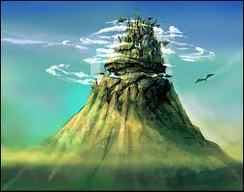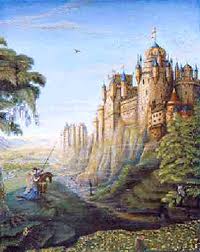Greek Mythology Competition! Mount Olympus Mount Olympus On March 11, we began our study of Europe with the foundations of western civilization in Ancient Greece, mapping the peninsula and islands, the bodies of water, important cities, and that most important mountain, Mount Olympus. Next, we learned about the mythological residents of Mount Olympus -- the Greek gods and goddesses. We read the first few stories in D'Aulaires' Book of Greek Myths in class. It is the best collection of Greek myths for children that I know. In preparation for a Greek Mythology competition, we formed teams and students met to plan their strategies with each child taking on the responsibility of studying certain stories or characters from the myths. On March 18, we held our competition and the kids had an opportunity to show just how much they had learned about Greek myths. Nicely done! The students also had a creative writing assignment describing an imaginary encounter with a Greek god or goddess! Camelot and King Arthur Camelot Camelot This week our travels through time and place brought us to England, to Camelot with King Arthur and the Knights of the Round Table. After an overview of the myth of King Arthur, we learned about feudalism, putting the stories in that political and economic context. Before we dove in, we considered the historical and fantastic elements of the stories, reading Sir Gawain the True, from the wonderful series by Gerald Morris, "The Knights' Tales." We read much of this lighthearted retelling of Sir Gawain and the Green Knight, leaving Sir Gawain on his way to fulfill his vow to let the giant green knight take a swing at his neck with an ax. Students may want to get this book so that they can find out how it ends! If you enjoy it, there are several more in this series which makes the King Arthur myths appropriate and accessible for younger readers. After enjoying the story, we worked on maps of the United Kingdom, finding important cities and bodies of water. For homework, each student chose a story map to complete. These will help them to consider the important elements of a story: plot, character, and setting. I hope this will help them to prepare for their class presentations later in the semester, which may be a folktale, original story, or geographical report. Next week, we will travel to Northern and Eastern Europe, enjoying Norse Myths and Polish Folktales. I hope you have a great week! Comments are closed.
|
Categories
All
Archives
May 2016
|

 RSS Feed
RSS Feed